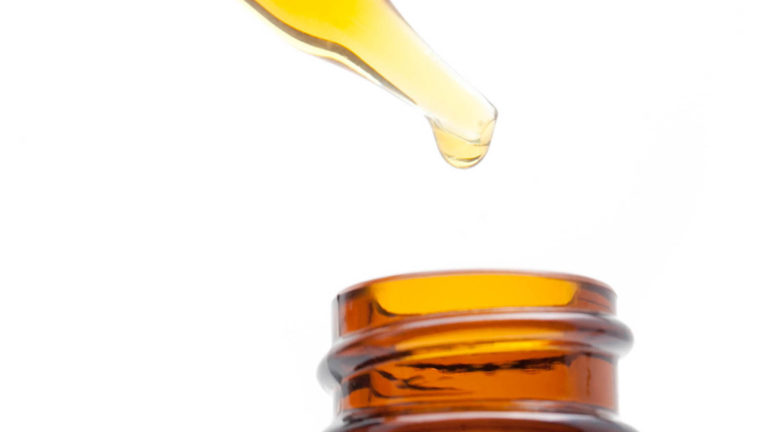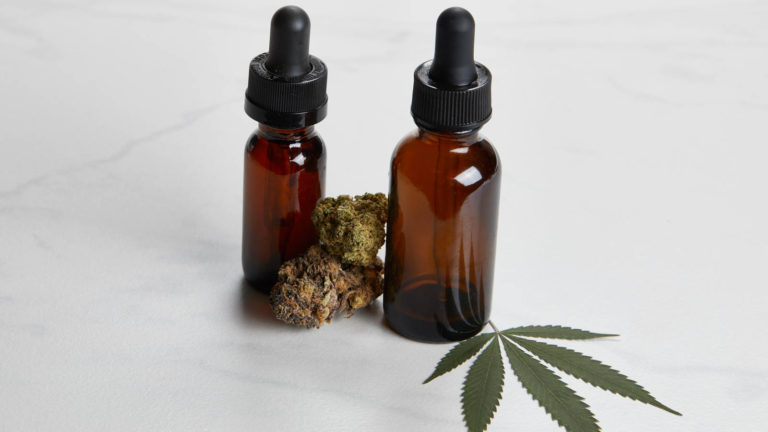Hemp is a crop that connects Kentucky's past with its future. In the 18th century, Kentucky was one of the largest suppliers of hemp in the United States until the 1930s, when both hemp and cannabis were criminalized. Following the 2014 Farm Bill, Kentucky reinstated hemp as a crop and has since developed a robust industrial hemp pilot program.
Non-psychoactive CBD was first legalized in Kentucky in 2014 for eligible patients under SB 124. The bill made no provision for the sale or production of CBD outside medical contexts. In 2017, hemp-derived CBD products with 0.3% THC or less became legal for all consumers in Kentucky.
Kentucky has no medical cannabis program at present. Adult-use cannabis is illegal. The possession of small amounts of cannabis has been decriminalized in Jefferson County and Louisville.
What is CBD?
CBD is a non-intoxicating cannabinoid found in cannabis and the second-most prominent in the plant after THC, which is largely responsible for producing an intoxicating high. CBD can be sourced either from marijuana or hemp plants and has a wide range of potential therapeutic benefits.
 Photo by: Gina Coleman/Weedmaps
Photo by: Gina Coleman/WeedmapsImage lightbox

To date, researchers have identified a number of potential applications linked to CBD, including anti-inflammatory, analgesic, anti-anxiety, and anti-seizure properties. Further, the chemical has shown promise in treating numerous health conditions, including seizure disorders, mood disorders such as depression, anxiety, and psychosis, chronic pain, and many more.
Most raw cannabis strains on the market today contain small amounts of CBD, especially compared with THC. But since the cannabinoid has gained considerable attention for its wide range of purported therapeutic benefits, more high-CBD strains have recently been cultivated.
Why is CBD sometimes illegal?
All types of cannabis, including hemp strains that don't produce enough THC to cause intoxication, were considered illegal under the Federal Controlled Substances Act of 1970. The law categorized all cannabis as Schedule 1, which defined the plant as a highly addictive substance with a high potential for abuse and no accepted medical use.
The 2018 Farm Bill re-classified hemp as an agricultural commodity and made its cultivation federally legal. Further, the act removed some forms of cannabis from Schedule 1 status by creating a legal distinction between hemp and marijuana. Hemp is cannabis with less than 0.3% THC, and marijuana refers to cannabis with more than 0.3% THC. This distinction in federal law effectively legalized CBD that is derived from cannabis with less than 0.3% THC, as long as it has been cultivated according to federal and state regulations.
The 2018 Farm Bill legislation does not mean that CBD derived from hemp is universally legal throughout the United States. According to the Farm Bill, the Food and Drug Administration (FDA) has the power to regulate CBD product labeling, including therapeutic claims and the use of CBD as a food additive.
The FDA has declared that even hemp-derived CBD may not legally be added to food and beverages, or marketed as a dietary supplement. Although the organization has begun to re-evaluate some of its stances on legal CBD products, the FDA has not revised its regulations. The agency also has been strict in its position against any labeling that could be perceived as a medical claim about CBD.
In addition to the federal regulation of CBD, the Farm Bill also gave states the option to regulate and prohibit the cultivation and commerce of CBD. States may also regulate CBD in food, beverages, dietary supplements, and cosmetic products independently, even before the FDA finalizes its policies.
Kentucky CBD laws
Kentucky residents may legally purchase and consume hemp-derived CBD products on the provision that the product contains no more than 0.3% THC or other cannabinoids. Hemp-derived CBD cannot be sold in flower form.
In 2014, hemp cultivation was legalized with the passage of the 2014 Farm Bill. In that same year, 2014, Gov. Steve Beshear signed SB 124, a law that allowed eligible patients to access hemp-derived cannabidiol (CBD) products with a physician's written order. CBD derived from cannabis is illegal in Kentucky for medicinal purposes. Two bills proposing the creation of a medicinal cannabis framework were passed over in 2015.
The 2014 Farm Bill catalyzed the creation of Kentucky's industrial hemp pilot program, with regulations drafted and overseen by the Kentucky Department of Agriculture (KDA). In 2017, Kentucky lawmakers passed HB 333, which broadly legalized the consumption and retail sale of hemp and hemp-derived CBD products that contain 0.3% THC or less.
In April 2018, Kentucky legislators published HCR35 in 2018 before the Farm Bill was signed into law, urging the FDA to remove hemp from the definition of marijuana and its Schedule 1 classification. When the 2018 Farm Bill passed, Kentucky lawmakers approved HB 197 to align the state's definition of industrial hemp with that of the federal government.
There is no specific legislation in Kentucky regarding the use of CBD in food or beverages.
Licensing requirements for CBD
The Kentucky Department of Agriculture (KDA) is responsible for the management and oversight of the state's hemp program. The 2020 growing season will see Kentucky shift from its research pilot program to full commercial hemp production under its USDA approved state hemp plan.
Only license holders registered with the KDA can grow hemp. Home cultivation of hemp without a license, or of cannabis with greater than 0.3% THC content, is illegal. Those interested in applying for a license to grow hemp must supply a criminal background check. To qualify for a license, the applicant must have no felony convictions or drug-related misdemeanors dated within the past ten years.
 Photo by: Gina Coleman/Weedmaps
Photo by: Gina Coleman/WeedmapsImage lightbox

Farmers participating in the program must use seeds provided by an educational institution with a DEA license and use varieties expected to be low in THC. The state tests a sample of each licensed farmer's hemp crop. The lab test results must confirm that the final product contains no more than 0.3% THC content. Growers and processors are required by law to save their lab test results to ensure their availability to the KDA and law enforcement officials for a minimum of three years.
Kentucky CBD possession limits
The possession of any amount of CBD is legal in Kentucky on the condition that the product contains less than 0.3% THC by weight.
CBD derived from cannabis is illegal, even for medical patients. Possession of up to eight ounces of cannabis can lead to 45 days in prison and a $250 fine, while a subsequent offense of fewer than eight ounces may result in a felony charge, 1 to 5 years in prison, and a maximum $10,000 fine. Cannabis possession of more than eight ounces results in increased imprisonment.
Where to buy CBD in Kentucky
Kentucky residents can legally purchase hemp-derived CBD products in stores and online, as long as the product contains no more than 0.3% THC. Consumers can find CBD products at CBD-specific stores and grocers such as Whole Foods or Walgreens.
When purchasing from a brick and mortar shop, particularly if the store specializes in CBD, you can typically receive guidance from an employee. Explain what you're looking for, your reasons for consuming CBD, and they can point you in the right direction.
When it comes to online sales, CBD is most frequently found on brand-specific websites. You can also find verified CBD brands on Weedmaps. Reputable brands will generally provide you with essential product details, including the form of the CBD (such as oil, capsules, topicals, tinctures, etc.), the quantity of CBD the product contains, the other chemicals or ingredients present in the product, and more.
 Photo by: Gina Coleman/Weedmaps
Photo by: Gina Coleman/WeedmapsImage lightbox

While many online checkout systems support US-based CBD sellers, some companies like Paypal consider CBD a “restricted business” and don't support online sales. Confirm the websites' checkout system before purchasing CBD online.
How to read CBD labels and packaging
The 2018 Farm Bill shifted the oversight of hemp and hemp-derived products from the U.S. Department of Justice (DOJ) to the U.S. Food and Drug Administration (FDA). The FDA does not presently allow CBD-infused food, drinks, or dietary supplements to be sold, and hasn't yet provided regulations for hemp-derived CBD products.
Still, the agency warns that regulations in flux still require companies to make legitimate claims on their labels. Buyers should nonetheless approach CBD products with caution. A CBD product should clearly state what kind of CBD is used. Full-spectrum CBD oil means the extract contains cannabis-derived terpenes and trace amounts of cannabinoids such as THC. Broad-spectrum also includes other cannabis compounds but has had THC removed during the processing phase. CBD isolate is a pure crystalline powder containing only CBD.
Most reputable CBD producers typically include the following information on their CBD product labels:
- Amount of active CBD per serving.
- Supplement Fact panel, including other ingredients.
- Net weight.
- Manufacturer or distributor name.
- Suggested use.
- Full-spectrum, broad-spectrum, or isolate.
- Batch or date code.

